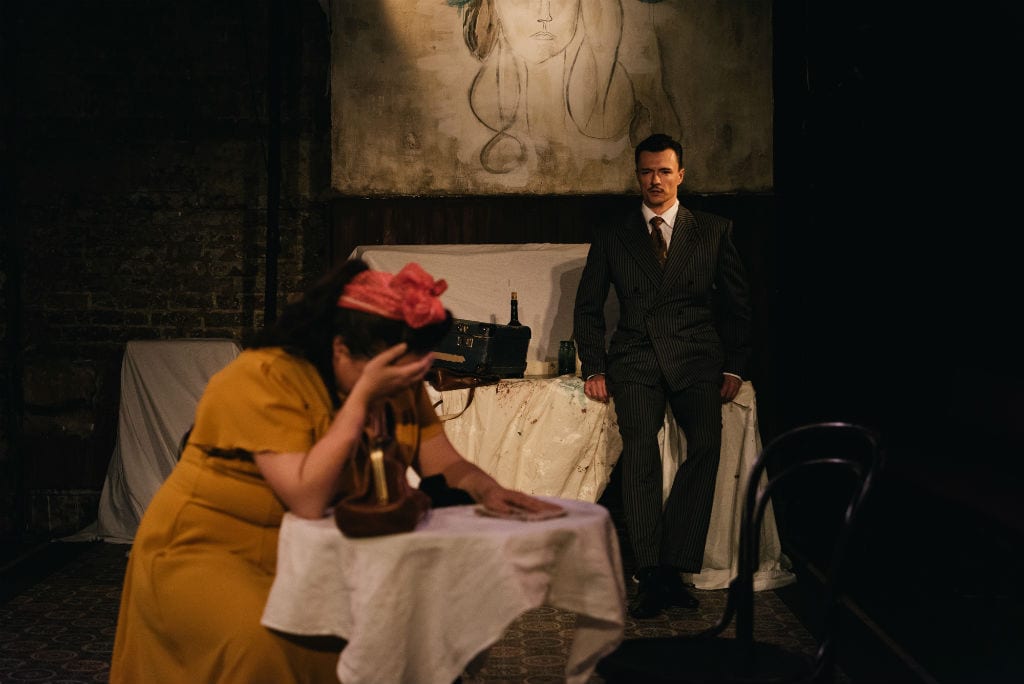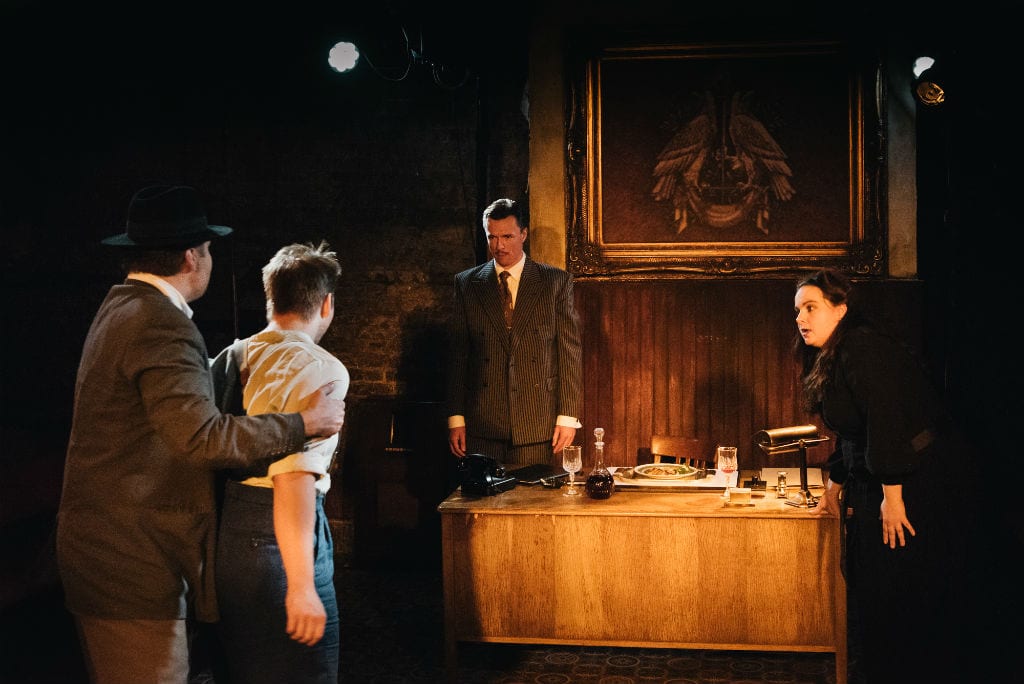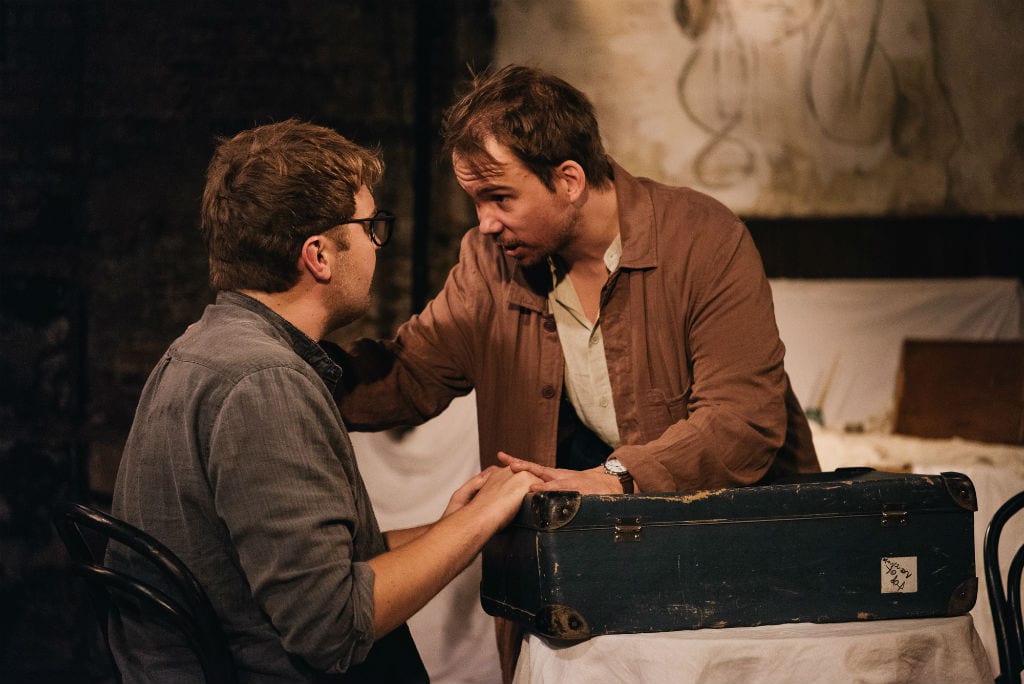The second act of Tosca is almost always a harrowing experience. The sexual abuse of a distressed woman by a powerful man is deeply disturbing – in the week that the behaviour of Harvey Weinstein has been the main news item, it was almost too hard to watch. And the fact that a nineteenth century music-drama illustrates so powerfully a curse that is still prevalent 100+ years later says much for the universal and timeless nature of great opera. Though this production in the small space at the back of the Kings Head pub is of necessity stripped down to the bare essentials of the plot – there are just four singers singing five roles and the orchestra is just piano, cello, and clarinet – the emotional impact of the central relationship between Tosca, the opera singer, and Scarpia, the sadistic police chief, is every bit as gripping as it would be on the stage of a grand opera house.
Director Adam Spreadbury-Maher has relocated the action from Rome in 1800 to Paris in 1944. Cavaradain is a painter who runs a café, and his lover is Floria Tosca, an opera singer. Cavaradain agrees to aid a Jewish prisoner who turns up at the cafe having escaped from gestapo headquarters. Scarpia, head of the gestapo, is hot on the trail of the escapee and, realising that the painter is involved, decides to exploit Tosca’s jealous love for Cavaradian to discover where the prisoner is being hidden. In the famous second act, Scarpia summons Tosca to his office and has her lover tortured in an adjoining room so that Tosca is able to hear his screams of pain. Eventually Cavaradain is condemned to be shot at dawn but Scarpia says to Tosca that she can save him by submitting to his sexual demands. The melodramatic ending is still very powerful, however many times one has seen the opera.
The first act never quite catches fire. Without the chorus and the church caretaker of the original, too much focus is laid on Tosca’s wild jealousies and both Philippa Boyle as Tosca and Martin Lindau as Cavaradain took a while to get the musical measure of the tiny space, packed with a full house. For a well- trained opera singer to adapt to these tiny spaces is a real challenge. The arrival of Przemyslaw Baranek as Scarpia helped to focus the sound and his steely tone, so appropriate for the merciless strategy he adopts to recapture the prisoner and to rape Tosca, was both musically and dramatically thrilling.
In the second act, all of the singers – including Thomas Isherwood as Scarpia’s hitman – really found their musical feet and the confrontation between Tosca and Scarpia was simply superb. Scarpia’s sadism and Tosca’s growing desperation were tellingly portrayed and Philippa Boyle’s big aria “Love and music” was stunning. And, matching his colleagues, Martin Lindau in act three produced a lovely version of his “Glimmer of starlight” aria that was very fine musically and dramatically poignant. After some early tuning glitches, the three piece orchestra did a fine job of backing the singers, though understandably unable entirely to compensate for the absence of Puccini’s wall of sound at some key moments.
The transfer of the action to Nazi occupied Paris works well and there are some lovely touches – like Tosca being heard singing the Horst Wessel song on Scarpia’s wireless set. There are some losses; the original Tosca displays an intriguing mixture of sexual freedom and religious sentimentality – and I am not sure the news of the D-day landings would have inspired Cavaradain to his “Victorious” outburst. But these reservations are swept aside by the sheer emotional power of the central core of the drama and the joy of hearing fine young singers giving Puccini’s genius their all.




